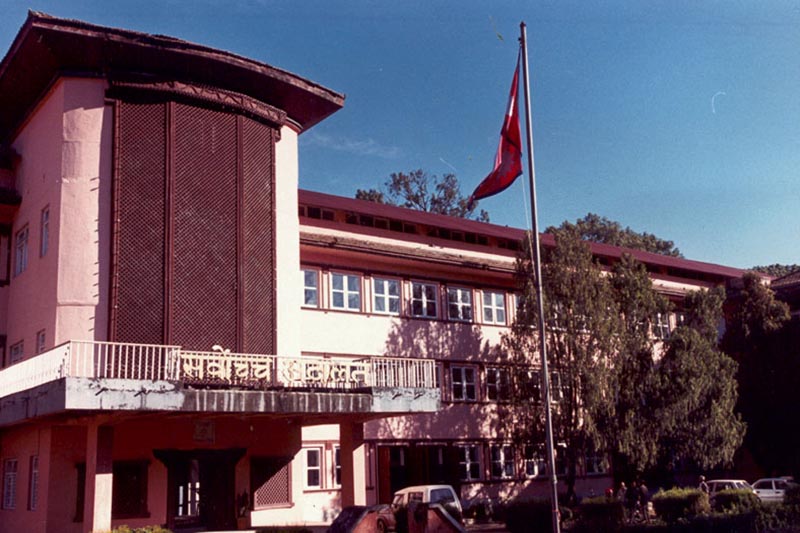Sacking of political appointees stayed
In the absence of stay order, govt could have appointed new persons in govt entities
Kathmandu, July 12
The government suffered a blow today as the Supreme Court stayed its decision to sack two political appointees — Digambar Jha and Bishnubabu Mishra.
A single bench of Justice Purushottam Bhandari issued an interim order till further hearing in response to the cases filed by them against the Office of the Prime Minister and Council of Ministers and others. The SC ordered both sides to present their arguments in the next hearing when it will decide whether or not to continue the stay order issued today. Mishra’s case will be heard on July 18 and Jha’s on July 19.
Mishra was the chief executive chairperson of Deposit Credit Guarantee Fund and Jha was the chairperson of Nepal Telecom Authority when they were sacked by the government. The apex court also issued show cause notices to the defendants.
The KP Sharma Oli-led government had decided on July 4 to rescind the appointments made by the Sher Bahadur Deuba-led government in government entities after August 30.
The government stated that it rescinded the previous government’s decision to make appointments in government institutions because those appointments were made after the election code of conduct was enforced. Nevertheless, Nepali Congress leaders claimed that those appointments were valid as they were made only after seeking permission from the Election Commission.
Senior Advocates Shambu Thapa, Harihar Dahal, Hari Prasad Uprety and advocate Baburam Dahal pleaded on behalf of Jha.
Thapa said since the government fulfilled all legal requirements before appointing Jha, such as seeking expert opinion and consent of the Election Commission, the new government could not sack Jha. He added that the government did not cite any legal ground for sacking Jha. Uprety said since the KP Sharma Oli-led government had not cited any legal provision for revoking the previous government’s appointment, the new government’s decision to rescind Jha’s appointment was unlawful. Thapa and Uprety said if the court did not issue stay order, the government could find a pretext to appoint new persons in government entities.
He said appointments of members of the National Planning Commission could be termed political, as they did not have any eligibility criteria or fixed tenure, but other appointments that were made on the basis of candidates’ qualification could not be termed political. “NPC members resign when a new government takes charge but the same should not apply to other appointments,” he argued.
Senior advocates Sushil Panta, Tulsi Bhatta and Krishna Prasad Sapkota pleaded on behalf of Mishra.
Bhatta argued before the bench that the appointment of his client was not political as claimed by the government and therefore the law under which Mishra was appointed had to be followed if the government wanted to remove him. He said the government did not give Mishra a chance to present his side of the story before removing him from his post, a violation of the principle of natural justice. He also claimed that the previous government had appointed Mishra after seeking permission from the Election Commission. “If an appointment is made by the government without seeking the EC’s permission, punitive action must be taken by the EC and not the government,” he argued.
Other political appointees, who were sacked by the government, have also moved the court.






